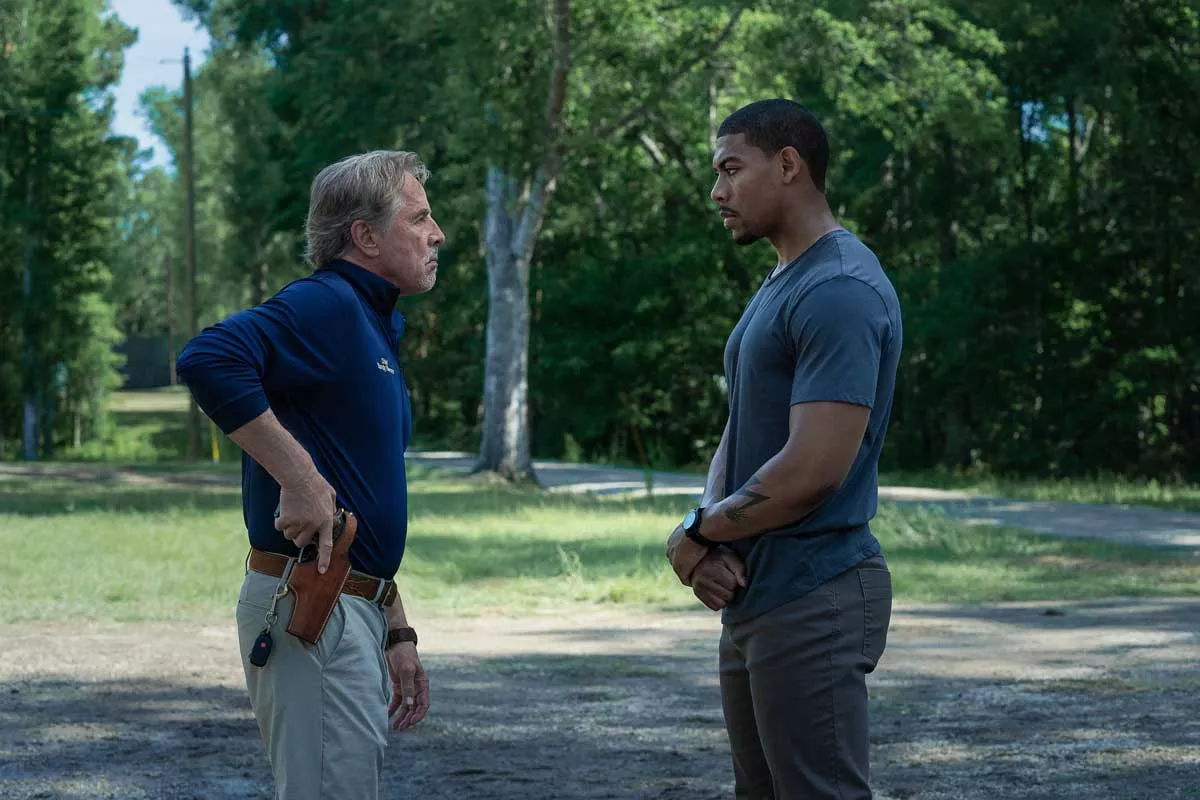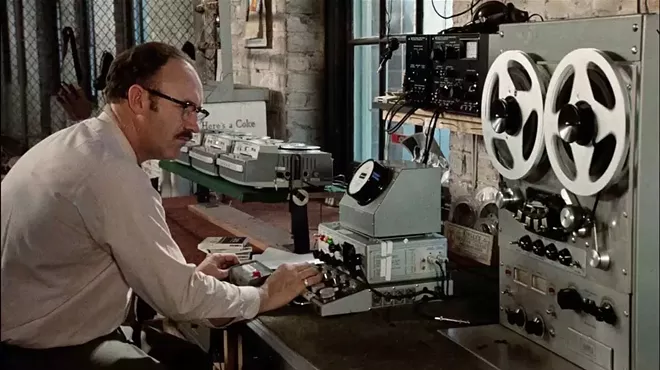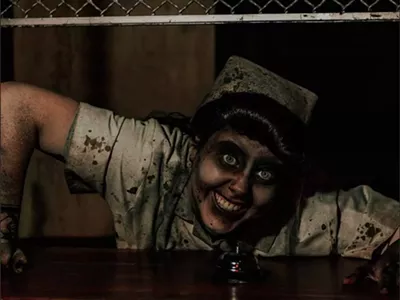‘Rebel Ridge,’ Jeremy Saulnier, and the ‘Post-Social Next Wave’ era of filmmaking
Released directly to Netflix, Saulnier’s latest is simultaneously an old-school action movie, legal thriller, and a cultural critique of police corruption


Audio By Carbonatix
[
{
"name": "GPT - Leaderboard - Inline - Content",
"component": "35519556",
"insertPoint": "5th",
"startingPoint": "3",
"requiredCountToDisplay": "3",
"maxInsertions": 100,
"adList": [
{
"adPreset": "LeaderboardInline"
}
]
}
]
Last week I wrote about the New Hollywood movement of auteur filmmaking in the 1960s and 1970s and it got me thinking. I spent a thousand words talking about how seminal this period of cinema was and I realized I was lamenting about not living through that era when it was happening and what it would have been like to go to the theater and catch influential masterpiece after masterpiece — which, yes, would have been amazing.
But I also think I undervalued the current climate of brilliant filmmakers that are painting between the lines of the studio system while making movies that capture our current zeitgeist in the same way Scorsese, Kubrick, Altman, Spielberg, Lucas, et al. did back in the day.
I’m sure some writer much smarter than me has coined a catchy term for the modern generation of filmmakers who are defining today’s cinema, but I think I’ll call it Post-Social Next Wave. It describes this trend where genuine auteurs make deeply personal projects in or adjacent to studios that somehow don’t compromise vision, make lots of money, and exist in such contemporary social spaces that it’s almost impossible to tell whether they’re changing culture and predicting trends or whether they’re sneakily following them.
Contemporary filmmakers like Ari Aster, Greta Gerwig, Sean Baker, Xavier Dolan, The Daniels, Robert Eggers, Jordan Peele, The Safdies, and several others make movies that feel so immediate and instantly a part of culture that they act as spy glasses into the future of not just cinema, but the ever-shifting and mercurial cultural landscape.
Most of these filmmakers have made less than a half dozen films and that’s the point: while they aren’t (at least yet) juggernauts like the Coen Bros., Wes Anderson, David Fincher, Chris Nolan, or Quentin Tarantino, they are the next guardians of the art form and the eventual architects of the entire framework of cinema. No one knew how seminal filmmakers like Altman and Cassavetes were when they were just a few movies into their careers and we probably won’t know the importance or genius of some of today’s artists in our lifetimes.
I think it would be interesting to touch on some of these Post-Social Next Wave filmmakers over the coming months and explore how the culture of filmmaking is changing, even as studios desperately grab for power harder than ever before.
This week is a perfect time to start with the unsung genius of Jeremy Saulnier, a filmmaker that over the course of 17 years and five features has created some of the most visceral and unforgettable films of the era. Saulnier’s new film, Rebel Ridge, was released directly to Netflix last week and is simultaneously an old-school action movie along the lines of First Blood, but also dips its toes into being a legal thriller and a cultural critique of police corruption and the slow degradation of humanity through a thousand cuts.
Rebel Ridge feels much more like a Hollywood blockbuster than any of his earlier work, while still playing very much like a Saulnier picture. Let’s look at his five features.
2007’s Murder Party is a slapstick horror comedy about a lonely schlub that gets invited to a Halloween party where the guests plan on killing him brutally and using the act of his murder as the basis of an art installation. It’s funny, gross, and a scathing takedown of the sometimes facile nature of the art world. It’s a wildly entertaining debut and unlike anything he has made since.
Saulnier followed that film with 2013’s Blue Ruin, a slow-burn revenge thriller about a broken man trying to get revenge against the man that killed his parents — and failing miserably. It’s brutal and bleak, while somehow also being laugh-out-loud hilarious throughout. Saulnier shows with Blue Ruin his uncanny ability to find stillness and beauty in some of life’s darkest detours. His eye for intense action, the impenetrable vastness of nature, and the solitude of human nature is born here and is a theme he carries over to the rest of his work.
Next came 2015’s Green Room, the film that cemented Saulnier as a master of tension and suspense. It follows a young punk band that shows up to a bar in rural Oregon to play a show and ends up surrounded by a gang of bloodthirsty neo-Nazis led by Patrick Stewart. One of the high watermarks of horror in the new century, Green Room is a modern classic that takes the concept of punks vs. Nazis and makes something deeply empathetic and incredibly badass.
Next is 2018’s Hold the Dark. It’s probably Saulnier’s weakest film, but is still a mesmerizing modern fable about a word hunter and the emotionally bereft woman he tries to save. Jeffery Wright is so good in this that it’s impossible to look away. And even when the story veers into ridiculousness, it’s still a work of daring originality.
Now comes Rebel Ridge, featuring a star-making performance from Aaron Pierre, a great villainous performance from Don Johnson, and a simple but effective plot about a group of redneck cops that mess with the wrong former marine. This feels like an amped up action thriller like Jack Reacher, but with the intelligence of Michael Clayton. Every line of dialogue, every beat of action, and all the characters are perfectly calibrated for maximum coolness and almost effortlessly, Saulnier has made a modern action movie that feels culturally important in its exploration of civil forfeiture and backwoods police power trips. It’s also just so very badass and instantly iconic.
So, check out Jeremy Saulnier and any of his five fantastic movies for a sneak peek at the future of cinema. I hope Rebel Ridge catches on and becomes a huge streaming hit (although it would have been awesome to see it in a theater). Whatever Saulnier does next, whether it’s another dark trip down into the human soul or an Avengers movie, I’ll be there, ready to be blown away all over again.






